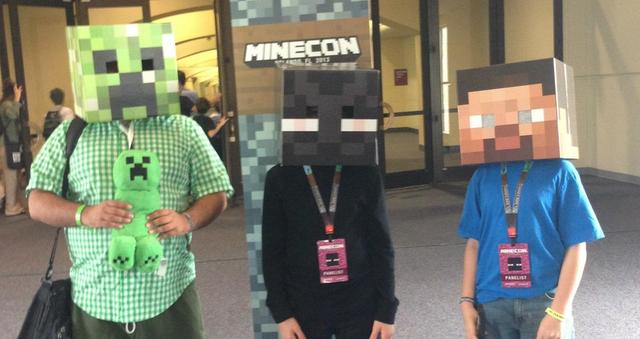If you click on a link and make a purchase we may receive a small commission. Read our editorial policy.
Good Omens season 2: What Aziraphale's plight says about religion and goodness
Good Omens season 2 tempts the audience to question what they've been taught

The second season of Good Omens dropped recently, and I can’t stop thinking about it. The series, an adaption of Neil Gaiman and Terry Pratchett’s book of the same name, concerns the angel Aziraphale (Michael Sheen) and the demon Crowley (pronounced CROW-ley, and played by David Tennant), who have spent the entirety of human history on Earth. Aziraphale was actually the angel with the flaming sword who stood guard at the entrance of Eden; Crowley was the serpent who tempted Adam and Eve.
Over the centuries, despite what would seem like a pretty significant hurdle, the two bond, in no small part because they both come to care about human beings, while Heaven and Hell are only interested in destroying one another. The first season of the show involved Aziraphale and Crowley secretly fighting to stop the apocalypse that Heaven and Hell had put into motion.
In the second season, our heroes’ dilemma is a bit more mysterious. The angel Gabriel (Jon Hamm), having previously been the head of Heaven’s forces, shows up at Aziraphale's bookshop with no memory of his past, while everyone from Heaven and Hell hunt for him. Once again there’s the possibility of disaster which Crowley and Aziraphale work to thwart.
But this time around, success comes with an unexpected cost. Despite all he’s learned over two seasons (and a million years) about how Heaven works, Aziraphale can’t bring himself to leave it behind. After discovering that in the wake of the first season’s failed apocalypse Gabriel had stopped believing in the whole Us vs. Them of Heaven and Hell and fell in love with Head Demon Beezlebub (which is indirectly how he ended up mind-wiped), Aziraphale is offered a job in Heaven as Gabriel's replacement, ostensibly to "fix" heaven from within.
As anyone who has seen the show can tell you, Aziraphale and Crowley belong together. So that ending hit me square in the feels. But the thing that’s been haunting me is Aziraphale’s inability to quit Heaven, and what his plight is saying about religion and goodness.
The (Demon) Pilgrim’s Progress

One of the great conceits of Good Omens is that Aziraphale and Crowley have been together through all the great events of human history. Both seasons of the show are peppered with flashbacks in which we see the two of them at various moments from their history, like the London Blitz or the Flood. In the first season, those flashbacks serve to show how their relationship developed over time.
The second season flashbacks are much more focused on each character’s journey away from their respective “administrations.” The series opens “Before the Beginning,” as the show puts it, at the creation of the universe. It turns out that, in his earlier days as an angel, Crowley was the architect for the design of the entire universe. We get to see him bringing it all to life as well as the happiness it gives him to imagine the incredible future it’s going to have.
Then Aziraphale informs him that everything he’s made is just a backdrop for this tiny planet of human beings that God is creating in one corner of the universe, and also it’s all going to get destroyed in 6000 years.
Crowley, horrified, insists that someone needs to tell the Almighty that this is a terrible idea. And the more Crowley goes on about just how bad this plan is, how God needs a suggestion box, the more uncomfortable Aziraphale becomes. For him, the whole idea of correcting God is sacrilegious. He warns Crowley to be careful, but Crowley thinks it’ll be fine. “How much trouble can I get into just for asking a few questions?”
Therein lies the root of his fall from grace, the show implies. Evil, as far as Heaven is concerned, is not a matter of harming humanity, but of not simply doing what you’re told.
The Plight of the Angel

Meanwhile over the course of the season we also watch Aziraphale being confronted with his own version of the same dilemma. The key flashback for him is the biblical story of Job, one of the most memorable (and haunting) stories in the Bible. Job was a man who lived a blameless life and was always faithful to God. But after the Devil suggested that Job was only faithful to God because God kept his life easy, God agreed to take all that Job had away from him to see if he still stayed faithful.
In fact Job does stay faithful. And as a reward God agrees to give him even more than he lost—lots of cattle, lots of wealth, lots of new children. It’s on this point about Job’s children dying, that horrifies Aziraphale. But Gabriel and the other angels simply cannot understand what the big deal is; after all, Job and his wife are actually going to have more kids now.
In the Bible, it’s just the same. God literally has a house fall on Job’s kids, then God “makes it right” by giving Job more kids, like they were Funko Pops instead of people. And all the story has to say in response is that Job died super old, super rich, super content and with daughters more beautiful than any women in the land. (Sorry past daughters, Daddy’s got prettier kids now!)
Discovering that Crowley has been tasked with doing all these horrible things to Job, Aziraphale enlists his help to save Job’s children. But then after the matter is resolved (and the children saved), Aziraphale is completely devastated. Having disobeyed God, he sits there waiting to be taken to Hell. “I’m like you now,” he tells Crowley. “A demon.”
And the fact that he actually isn’t sent to Hell doesn’t reassure him. The idea of being “just an angel who goes along with Heaven as far as he can,” as Crowley puts it, sounds horribly lonely. It doesn’t matter if Aziraphale has good intentions and cares about humanity, by the set of rules that Aziraphale and Crowley were raised on, disobeying God is an act of betrayal.
And so when Metatron (Derek Jacobi), God’s right hand, offers Aziraphale a job in Heaven while also promising that Aziraphale will have the power to give Crowley back his angelic status, he takes it. “Heaven, it’s the side of truth, of light, of good,” Aziraphale tells Crowley. “If I’m in charge, I can make a difference.” And even learning that Crowley is in love with him, and realizing that they could have a future like Gabriel and Beelzebub doesn't change his mind.
No matter Heaven’s many obvious flaws, Aziraphale still can’t see himself apart from it. His happiness, indeed his moral goodness or badness remains defined for now on its cruel terms. It’s horrifying and devastating.
We are all Crowley and Aziraphale

“Deprogramming” is a term used to describe the psychological work of helping someone to break free of mental brainwashing or “programming.” Usually it’s used in reference to religious cults, which use strategies like isolation from past relationships, constant communal bonding, and endless preaching to dominate the lives of those who fall under their sway.
In a sense Good Omens is the story of two beings who have been in a cult, for whom an eternity of life on Earth has offered a kind of natural deprogramming. For Crowley and Aziraphale, it's clear that Heaven and Hell’s constant fixation on each other at the expense of everything else stops making sense when the cost is destroying humanity and the universe. (The show makes a special point of highlighting how much Aziraphale likes food and Crowley likes the music of Queen, underlining the appreciation they’ve grown to have for the sumptuousness of creation.)
Crowley in a sense has been free pretty much from that moment “before the beginning” when he chooses to question God. His journey in season two is really about taking the next step, realizing he doesn’t have to be alone for all eternity, as Heaven and Hell would have him believe. He can reach for Aziraphale, as he so clearly wants.
But meanwhile Aziraphale is still lost in the programming Heaven instilled in him, the superiority of Heaven—”your side are the bad guys” he tells Crowley before they part—and the necessity of being a part of the Heavenly community for his happiness. The deprogramming hasn’t yet taken, if it ever will. (Cut to: a clearly hoped-for season 3!)
Some have complained that Good Omens is anti-Christian, or more hilariously, “makes Satanism appear normal.” The fact that the real hero of Good Omens, the character fighting hardest for humanity and at the greatest cost to himself, is a queer demon will no doubt feed their silly fears. But I don’t think showrunner Neil Gaiman is hostile toward religious faith at all. Rather than pulling churches down, he seems intent on helping viewers to undertake the same journey as Aziraphale and Crowley, to consider the implications of some of their sacred stories and their religious institutions’ decisions and come to a greater freedom for themselves.
The second season of Good Omens is streaming on Prime Video now.
The song at the center of Good Omens Season 2 (and how Terry Pratchett made the connection)
Follow Popverse for upcoming event coverage and news
Find out how we conduct our review by reading our review policy
Let Popverse be your tour guide through the wilderness of pop culture
Sign in and let us help you find your new favorite thing.
















Comments
Want to join the discussion? Please activate your account first.
Visit Reedpop ID if you need to resend the confirmation email.